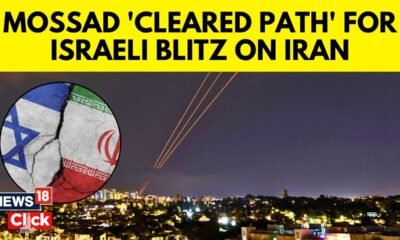The Thai Ambassador’s UN Evasion: A Web of Lies and Dodged Questions
The recent actions of the Thai ambassador at the United Nations have sparked international scrutiny and raised serious questions about transparency and accountability on the world stage. A video circulating online highlights the ambassador’s unusual avoidance of reporters following a contentious emergency Security Council meeting, fueling speculation about a potential cover-up. This post delves deeper into the unfolding situation, examining the allegations of lying, the controversial UN meeting, and the ambassador’s subsequent attempts to evade the press.
The UN Meeting and the Allegations of Lying
The exact details surrounding the emergency Security Council meeting remain somewhat shrouded in secrecy, however, reports suggest the ambassador made statements that have since been challenged as factually inaccurate. While the specific nature of these alleged falsehoods hasn’t been publicly disclosed in full, the subsequent actions of the ambassador strongly suggest a desire to avoid further questioning. This lack of transparency is what has fuelled the ongoing controversy and calls for clarification.
The gravity of the situation lies not only in the alleged lies themselves but also in the implications for international diplomacy. Trust and open communication are fundamental to effective international relations, and the ambassador’s actions cast a shadow over Thailand’s reputation and its standing within the UN. The lack of a clear and direct response from the Thai government further exacerbates the concerns.
The Ambassador’s Evasive Tactics
The most striking element of this story is the ambassador’s conspicuous avoidance of reporters following the meeting. Videos and eyewitness accounts depict the ambassador employing various tactics to escape questions, underscoring a clear attempt to prevent scrutiny and accountability. This behaviour has only served to increase suspicion and fuel public outcry. The seemingly deliberate evasion contrasts sharply with the norms of open communication expected from diplomatic representatives at such a prestigious international forum.
The strategic avoidance of the press is a significant departure from established diplomatic practices. Ambassadors typically engage with the media to provide clarification on their government’s positions and address public concerns. The Thai ambassador’s actions raise concerns about the lack of accountability and the potential for future obfuscation.
The Larger Implications for International Relations
This incident highlights a broader issue concerning transparency and accountability in international diplomacy. When high-ranking officials engage in potentially misleading statements and then evade subsequent questions, it undermines the credibility of international institutions and erodes public trust. It’s crucial that mechanisms are in place to ensure that diplomatic representatives are held responsible for their actions and that the pursuit of truth is prioritized.
The international community will be watching closely to see how this situation unfolds. A full and transparent investigation is essential to restore confidence and reinforce the importance of truth and accountability in international affairs. The silence from both the ambassador and the Thai government only adds fuel to the fire, making the demand for answers even more urgent.
This ongoing situation serves as a stark reminder of the importance of transparency and the crucial role of a free press in holding those in power accountable. The actions of the Thai ambassador have certainly ignited a debate about the necessary checks and balances within the international system. Only time will tell what the ultimate consequences will be.














![[VDO] What evidence does Thailand have to claim Tamoan Thom Temple as its own? 24 What evidence does Thailand have to claim Tamoan Thom Temple as its own](https://hothotnews.com/wp-content/uploads/2025/06/What-evidence-does-Thailand-have-to-claim-Tamoan-Thom-Temple-as-its-own-e1751463052220.jpg)


